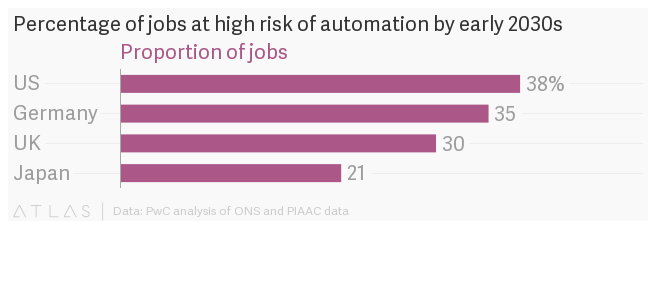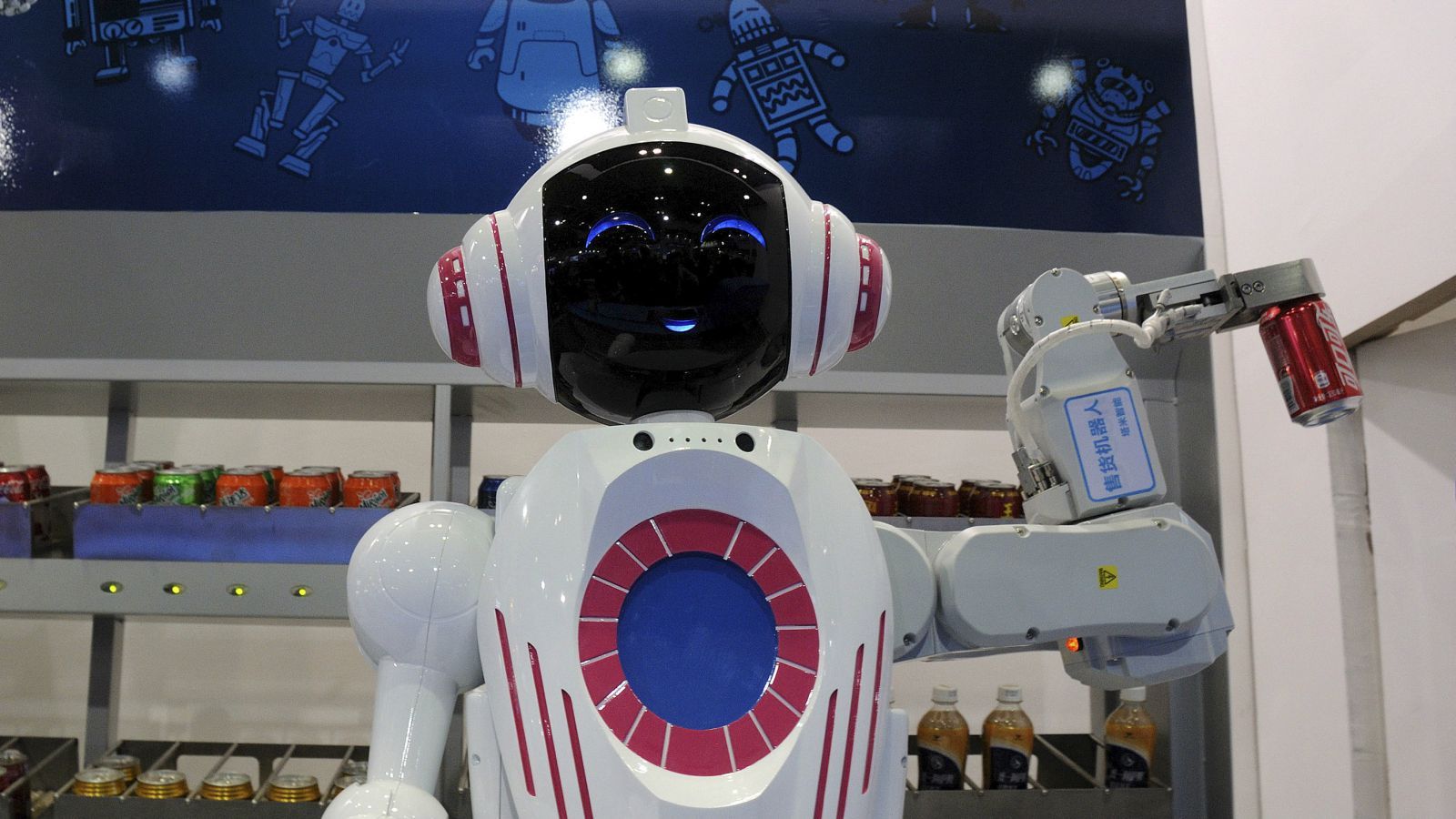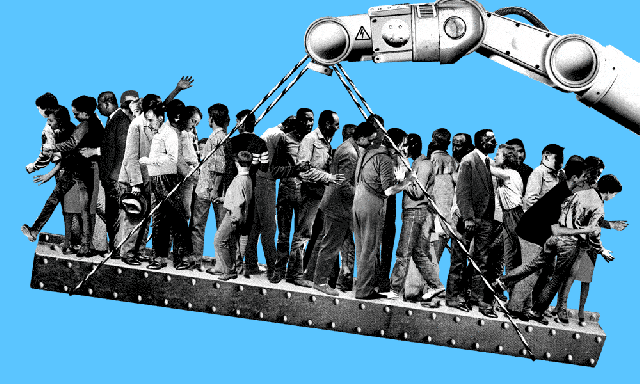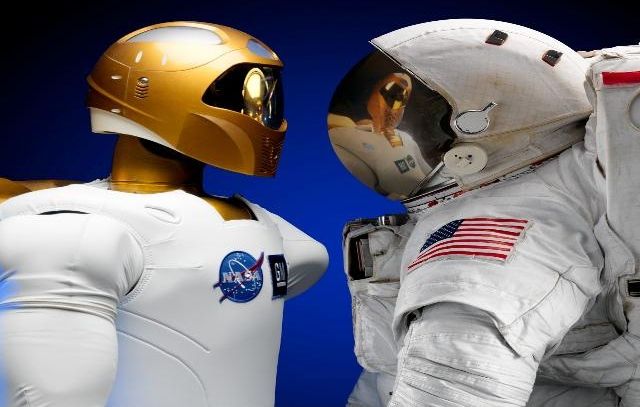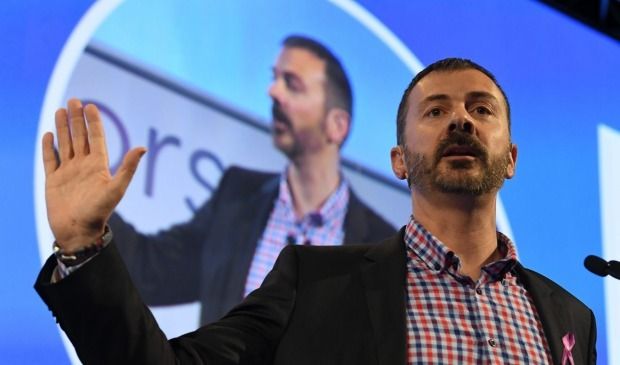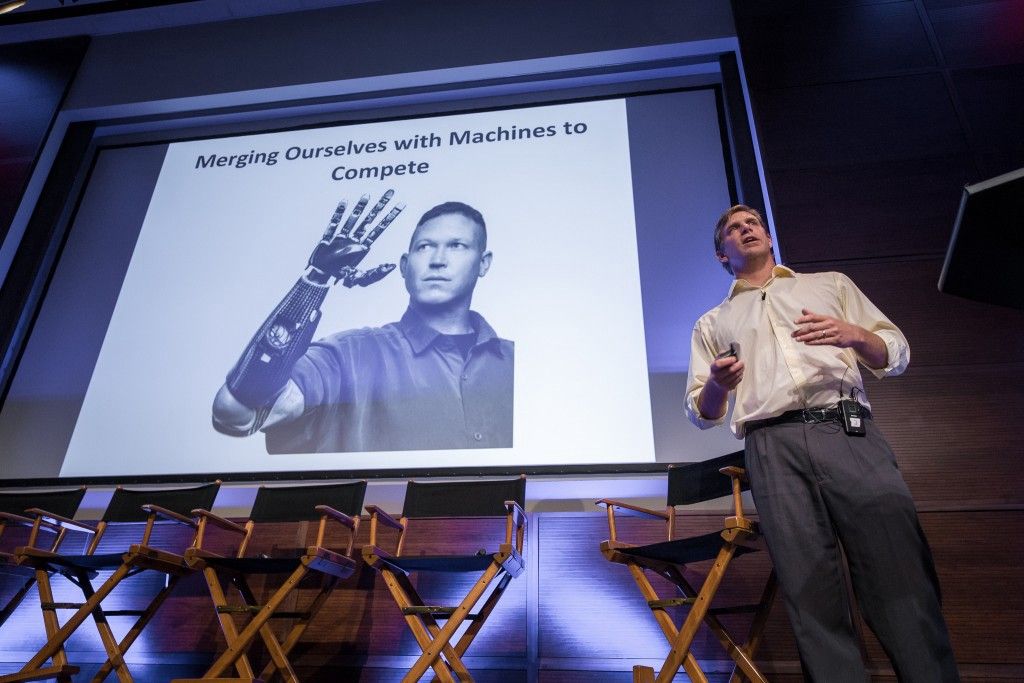PWC predicts 30% of jobs to be automated by 2030s.
You’ve been warned before—robots are coming for your job. The speed of technological advancement, particularly in smart automation, has sprung countless economic studies and political warnings about how many people are likely to lose their jobs to this rise of the machines. But it’s not an easy number to peg down; estimates range from 5% to 50%.
The latest predictions from PricewaterhouseCoopers (pdf) survey the damage for specific countries. Analysts at the consulting firm said that by the early 2030s, 38% of US jobs are at a high risk of automation, more than in Germany, the UK, and Japan.
